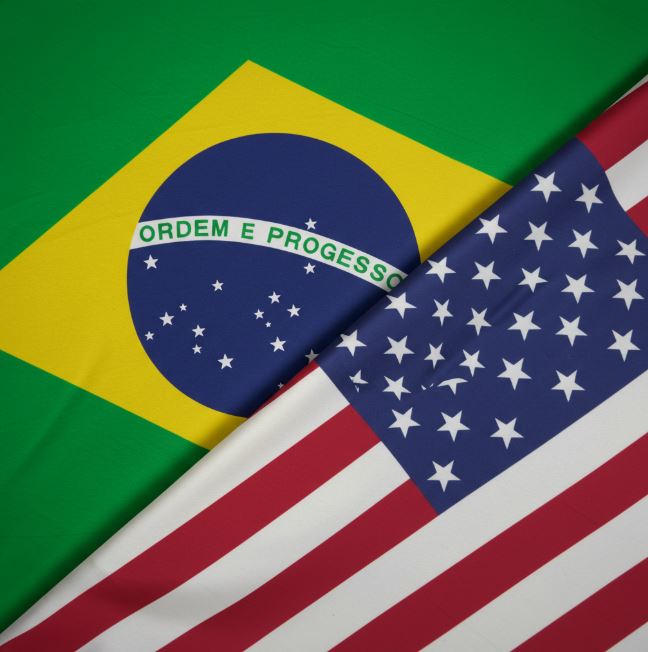The visa ban imposed by the United States against several high-ranking Brazilian judicial officials, including Supreme Court Justice Alexandre de Moraes and Prosecutor General Paulo Gonet, is having repercussions that extend well beyond the judicial and diplomatic realms.
The move has added an unneeded layer of uncertainty to the economic relations between the two countries, which are already on high alert due to the massive trade war.
The fines, labelled as “arbitrary” by Brazilian Solicitor General Jorge Messias, are a reprisal for Brazil’s judiciary pursuing legal action against former President Jair Bolsonaro, a Trump friend.
Bolsonaro is accused of scheming to change the results of the 2022 presidential election, which returned President Luiz Inácio Lula da Silva to office.
While the visa prohibitions are supposedly symbolic, aimed at personal travel and family access to the United States, their timing and extent are causing political and economic shockwaves in Latin America’s largest economy.
The restrictions come only days after Trump proposed a 50% tariff on Brazilian goods, effective August 1, a move that has been tied to his dissatisfaction with Bolsonaro’s trial.
Trade sanctions underscore shifting US stance on Brazil
The plan of the Trump government to levy high tariffs may be reflected in Brazilian exports to the US, especially in the steel, aluminium and agricultural sectors.
According to Trading Economics, the United States is one of Brazil’s largest trading partners, with over $40 billion in goods transported from the country in 2023. Along with the visa limitations, the impending tariff increase signals a shift from jalousie to trade war.
The inconsistent tactics of diplomatic sanctions through travel bans and economic pressure through tariffs do not promise well for the stability of economic relations in the second half of 2025.
The visa sanctions also cover the seven other justices from Brazil’s 11-member Supreme Court, strengthening the feeling in Brasília that Washington is facing a payback for its judicial independence economic response.
For investors and trade analysts, the situation might add fresh variables to the already complex Brazil-US trade scenario.
Economic nationalism and political fallout
The new changes are part of a larger trend of economic nationalism, with both Brazil and the United States demonstrating rising symptoms of domestic political factors infiltrating foreign economic policy.
Trump’s renewed support for Bolsonaro is consistent with his 2024 campaign rhetoric, which portrays global institutions and international tribunals as politicised actors.
The visa bans continue this narrative, positioning Brazil’s judiciary as a potential target in a larger ideological fight.
In Brazil, the reaction has been firm yet measured. Solicitor General Messias underscored that the judiciary will not be prevented from carrying out its lawful duty.
The Lula administration has not yet declared economic countermeasures, but it has voiced solidarity with the sanctioned justices, implying a coordinated response through official channels.
Meanwhile, institutional uncertainty may reduce Brazil’s appeal to international investors. Companies with significant US exposure are paying close attention, particularly those in export-driven industries.
If the visa bans are regarded as the start of a larger plan to put pressure on Brazilian institutions, cooperation in areas such as climate policy and digital trade may be hampered.
Economic fallout is likely to deepen
The visa prohibitions, while targeting judicial figures, have far-reaching consequences. They highlight a breakdown in mutual diplomatic respect and indicate a move toward more direct economic reprisal.
With tariffs on the horizon and judicial independence now linked to trade policy, the Brazil-US relationship may be entering its most economically tumultuous period in recent memory.
Wall Street is pricing in judicial decisions made in Brasília, sending a clear message to markets, investors, and policymakers.
The post US visa bans on Brazilian judges spark diplomatic rift, cloud economic ties appeared first on Invezz

